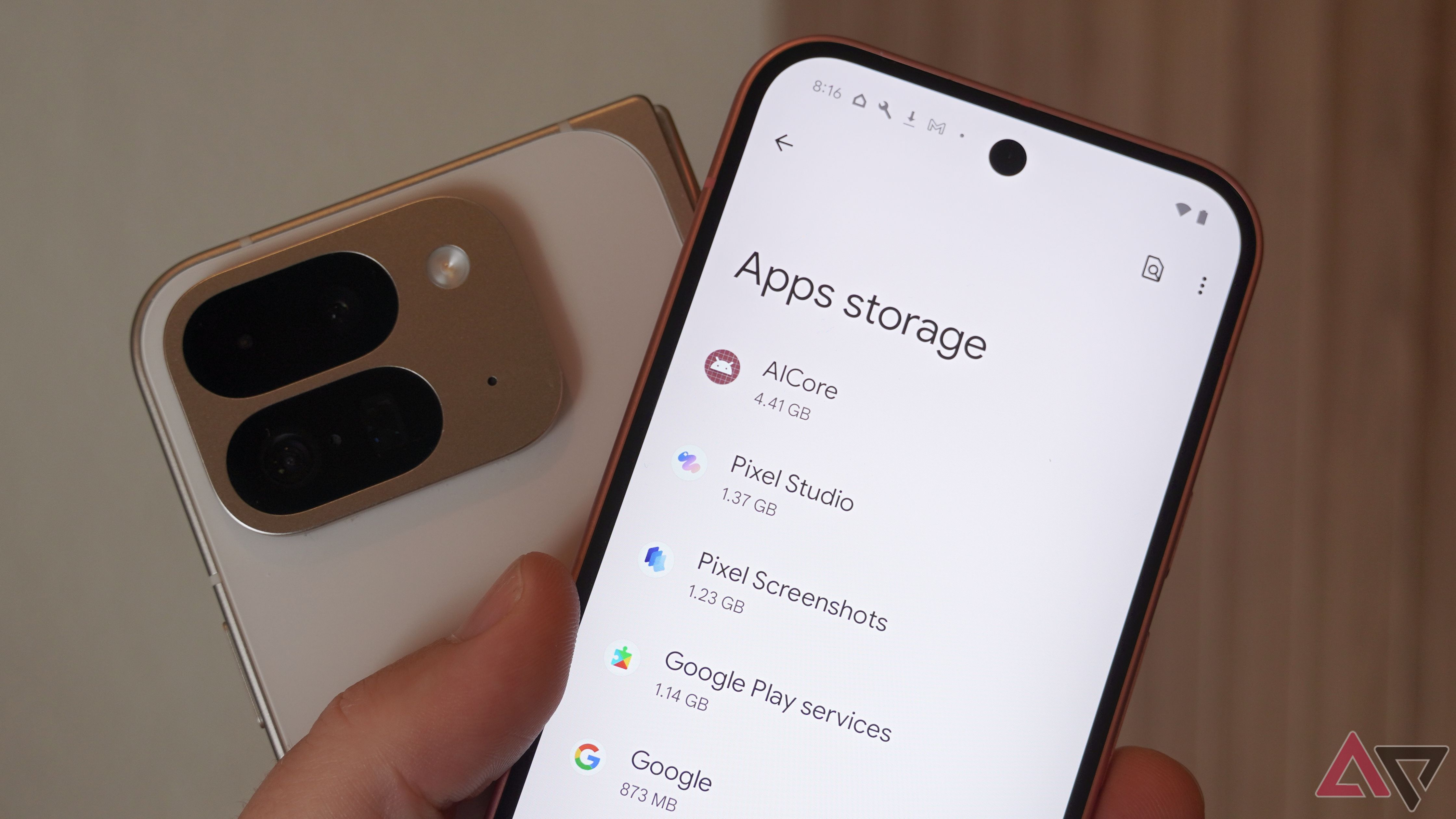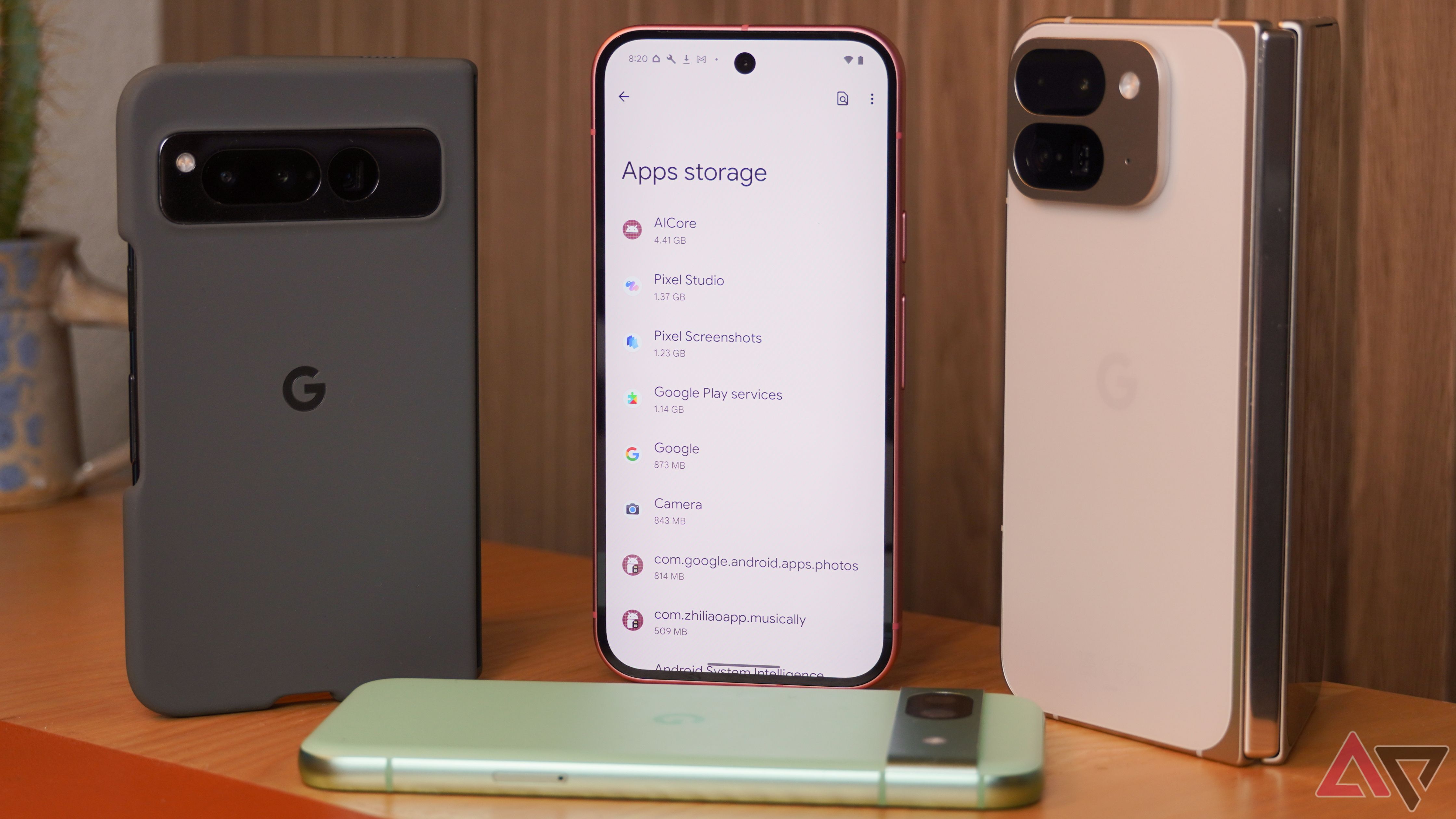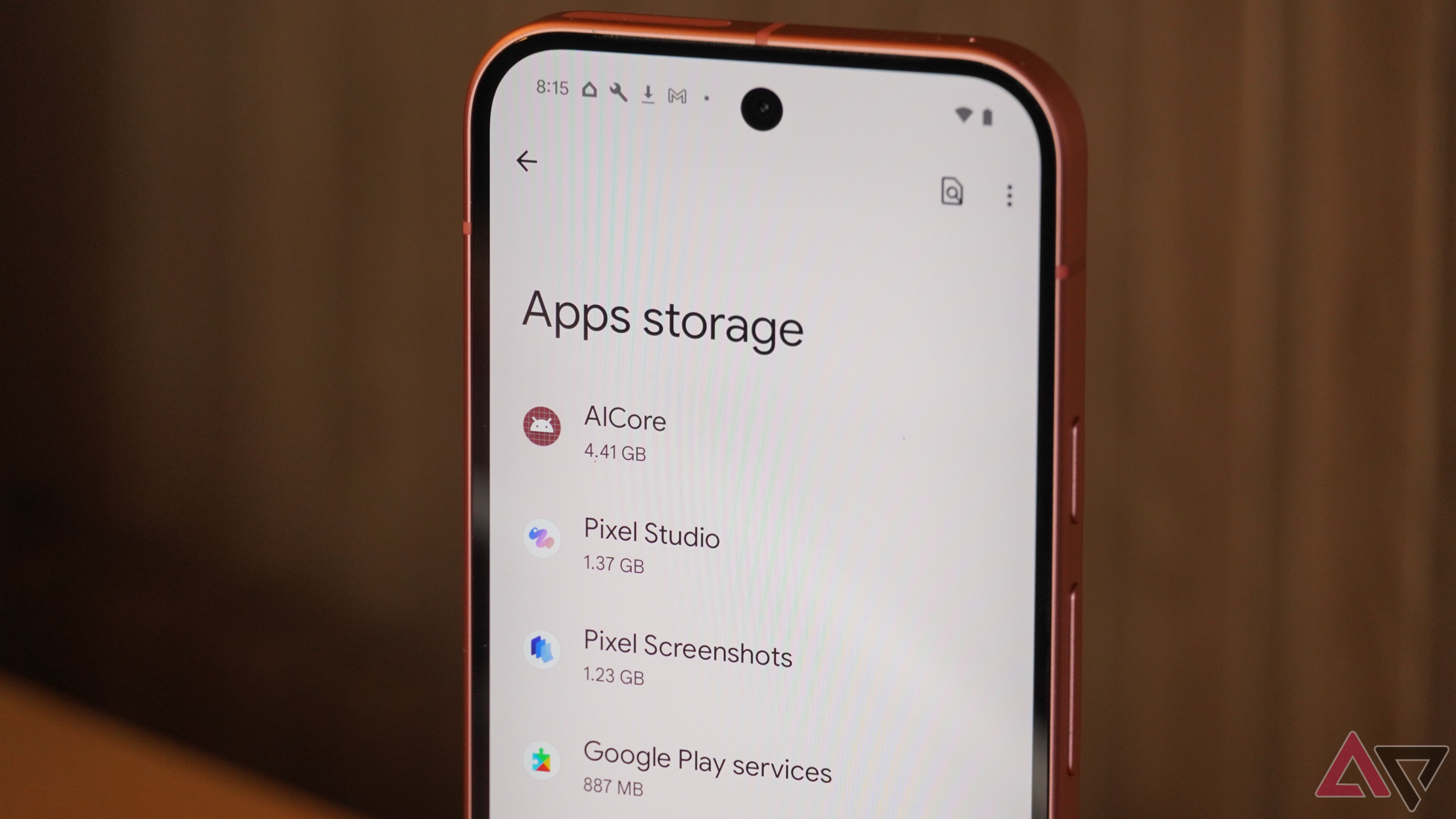Google started its AI smartphone push a year ago with the Pixel 8 series. Now, the mobile industry is following Google’s footsteps. Samsung’s latest Galaxy Z Fold 6 is being marketed as an “AI cell phone” in its official Amazon listing, and Apple says the new iPhone 16 is “built for Apple Intelligence.” The Google Pixel 9 series takes it to the next level with features like Add Me, Pixel Studio and Reimagine.
Only one problem. Google doesn’t provide its phones with enough basic memory and storage for AI tasks. The amount of RAM on a device is related to how well it performs AI functions on the device. However, the AI features in the Pixel 9 series use up your phone’s storage space now and in the future. With the Pixel 9, 9 Pro and 9 Pro XL starting at 128GB of storage, I’m worried that won’t be enough for the new wave of AI phones.
All the ways Android uses your storage
128GB isn’t really 128GB, and AI makes this problem worse
Google’s standard Pixel 9 series comes with 128GB of storage by default. For $1,800, the new Pixel 9 Pro Fold has 256GB. However, this is not the amount of space available to consumers. Usable storage space is a little less than 128GB. On top of that, the Android 14 operating system takes up a lot of space. Go on systems > savings > system To see how much storage your phone and OS are using.
I used the Pixel 9 and Pixel 9 Pro Fold for a few weeks, and a good portion of the storage was used up. My Pixel 9 has a system storage allocation of 14GB in used space. Meanwhile, the computer consumes 15GB of space on my Pixel 9 Pro Fold. That number increases as you install software updates and obtain necessary system files.
There are other ways to fill up your phone’s storage. Photos and videos take up a lot of space, especially if copied from an old phone to a new library. Applications take up space and consume a lot of storage while creating documents, data and cache. Music, movies, and games also contribute to losing storage space in the long run.
If you’ve been a smartphone user for a while or own an MP3 player or computer, you probably know this. A great way to find out how much storage you need on your current flagship Android phone. However, the advent of “AI phones” is changing the equation. This sets buyers up for failure.
How Google AI Used My Pixel 9’s Storage
Trust me, it only gets worse from here
Conventional methods of figuring out how much storage a user needs are thrown out the window with an AI smartphone. In the past, you considered how big your media library is, how many songs you have stored, or how many apps you use. In modern-day Pixel phones, the wild card is the amount of storage used by AI models, features and services. It is unpredictable. The only thing you can predict is that they will need more storage over time.
We talked about how the Pixel 9 leads the pack in bloatware, which has a huge impact on storage. Even worse, AI features that max out your storage space aren’t considered computer usage. Instead, they present themselves as their own objects applications breakdown.
Most of the computer-level AI tools on Pixel devices include AICore, an application that handles AI processing on the device. For example, it’s an all-inclusive system module that accesses and updates the Gemini Nano. After a few weeks of owning the Google Pixel 9, filling it with apps and other necessities, none of them are responsible for eating up a lot of storage. AIcore used almost 5GB of my device’s 128GB capacity.
As the app is 26MB, a closer look reveals that most of it contains user data. In other words, AICore is only getting more storage from my Pixel 9 as I continue to use it. Second place on my app storage list? Pixel Studio and Pixel Screenshots are also AI apps. Google promises seven years of software support for the Pixel 9. I can only imagine (or fear) how Google AI tools will eat up my 128GB of storage in that space.
Please, Google, give us more space
I know software is your thing, but great software needs great hardware
Google is self-aware of how it markets Pixels as AI devices. That’s why the new ones are bundled with free access to Gemini Advanced for a year. To get the best Pixel experience, you need Gemini Advanced, so Google is offering it to Pixel 9 buyers.
I’d like to see Google apply the same concept to on-device storage. For the Pixel 9 series to stand the test of time as AI smartphones, they will need more memory and storage. Google added memory to the Pixel 9 this year, but it needs to do the same with storage. Pixels should start with 256GB of base storage, as space is essential for phones to run flagship AI features in the coming years.
#Google #fill #phones #give #Pixels #storage #space


